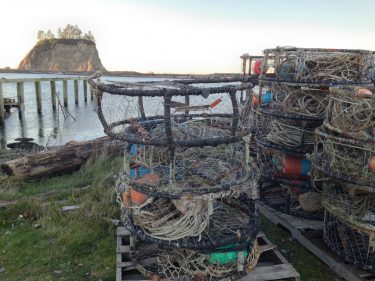
The productive ocean off Washington state’s Olympic Coast supports an abundant web of life including kelp forests, fish, shellfish, seabirds and marine mammals. The harvest and use of these treaty-protected marine resources have been central to the local tribes’ livelihoods, food security and cultural practices for thousands of years. But ocean acidification is changing the chemistry of these waters, putting many coastal species — and the human communities that depend upon them — under threat.
With a new $700,000 grant awarded from the NOAA Ocean Acidification Program, scientists from the University of Washington’s Applied Physics Laboratory, Washington Sea Grant and the Joint Institute for the Study of the Atmosphere and Ocean have teamed with federal and tribal partners to study the social and ecological vulnerabilities of Olympic Coast ocean acidification. The collaborative team hopes their work will enable Pacific Northwest decision-makers to better anticipate, evaluate and manage the significant and unique risks that ocean change presents to tribal communities.
“The goal of this project is to marry two currently disparate data sets: ocean chemistry and biological data collected by natural scientists, and social science data that includes how people use the resources that may be impacted,” said Jan Newton, a professor at UW’s School of Oceanography and oceanographer at the UW Applied Physics Laboratory.
Read more at UW Today »
